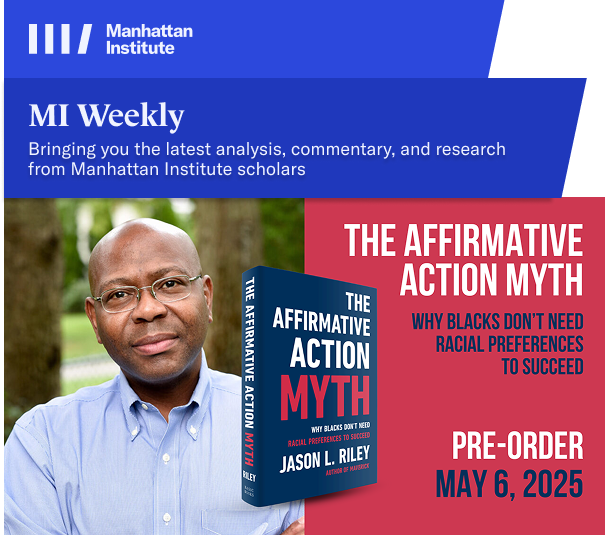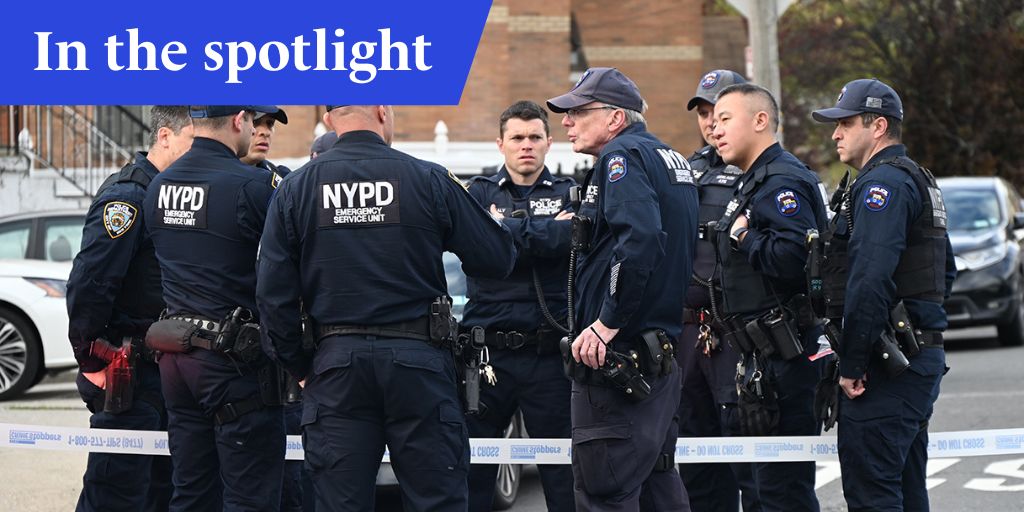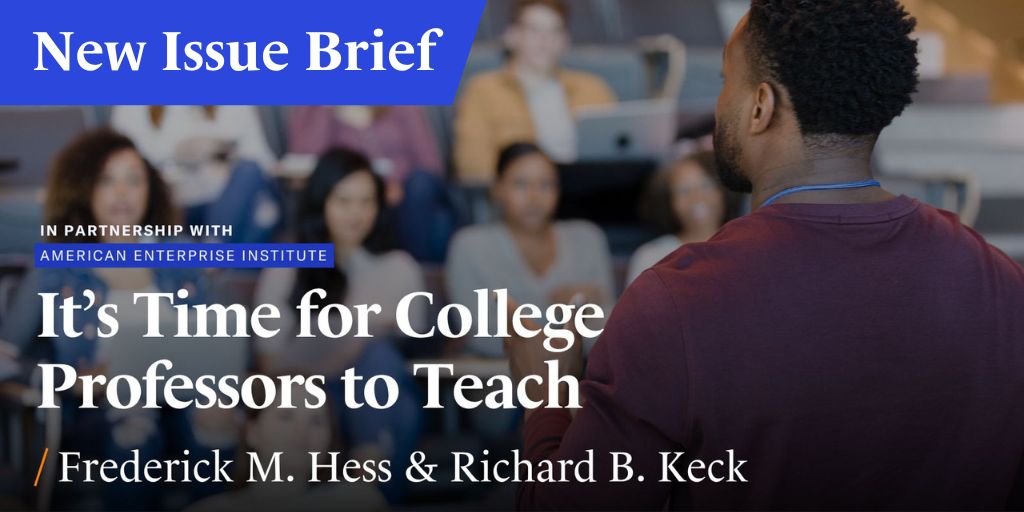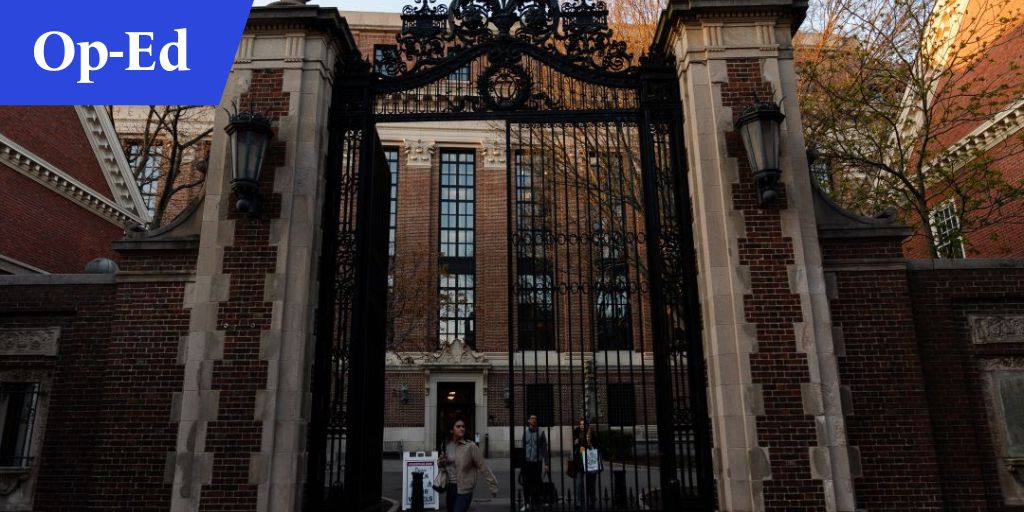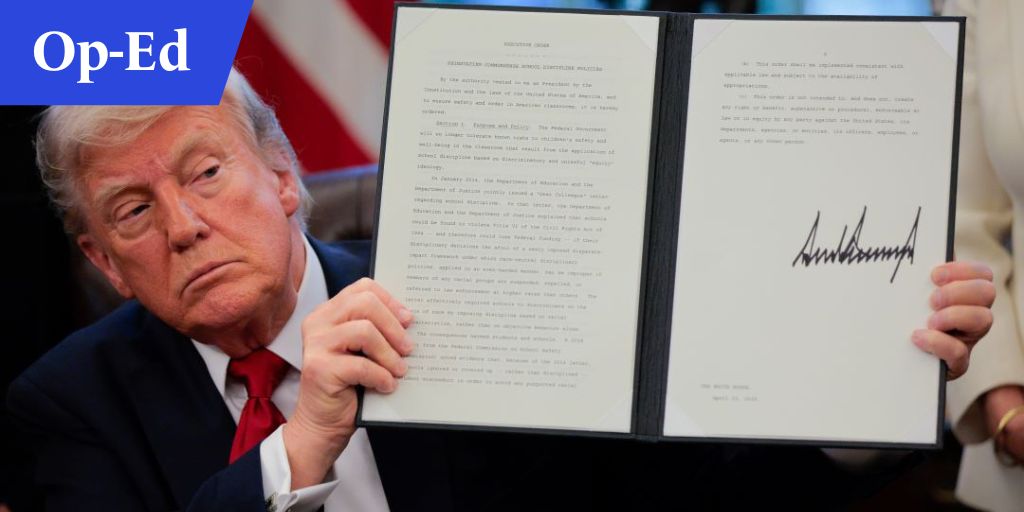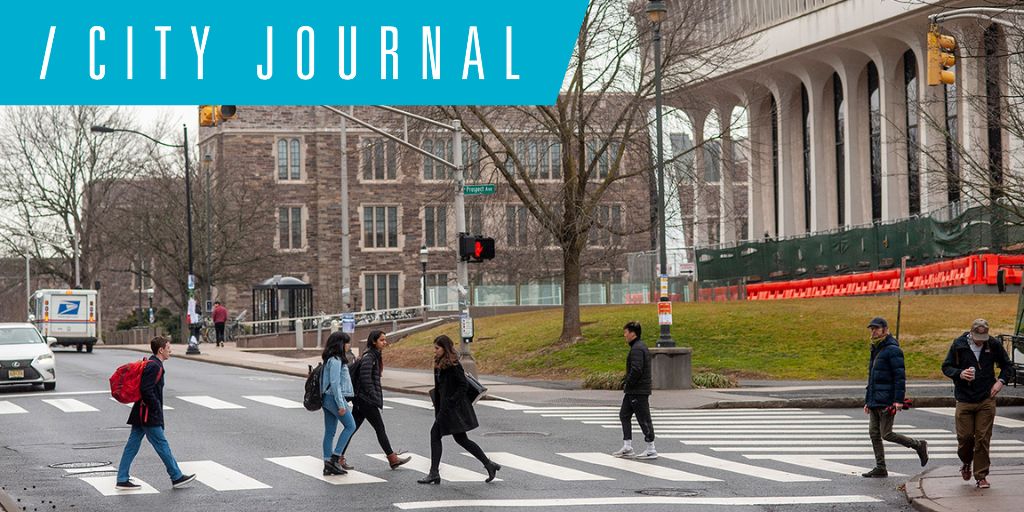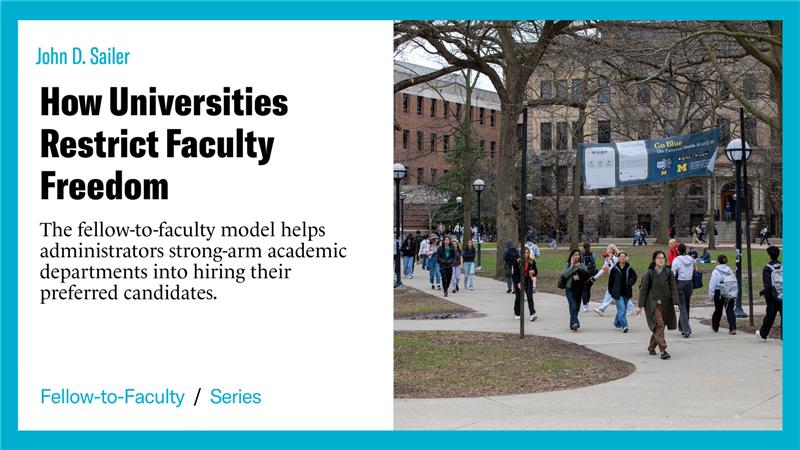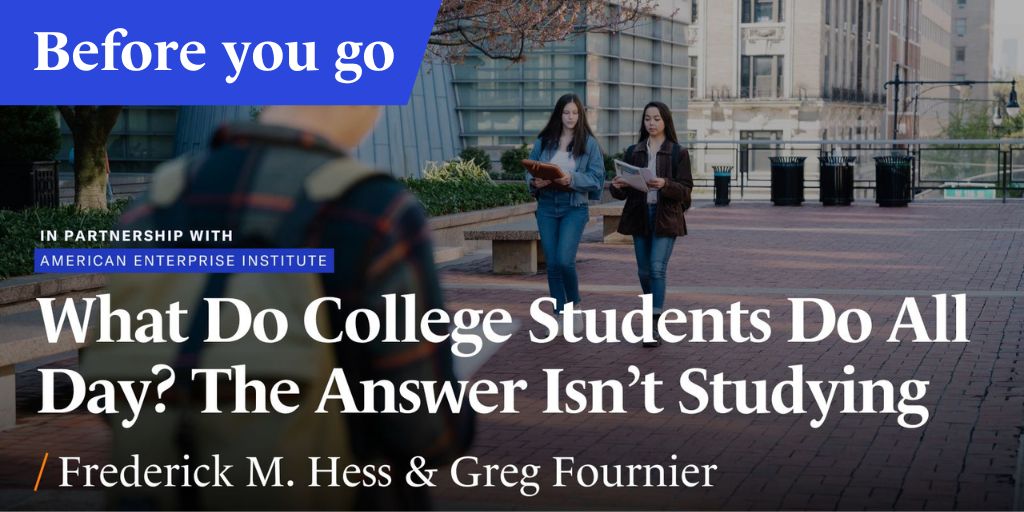Good morning:
President Trump gave voice to many Americans’ concerns about crime and civil disorder during the 2024 campaign. His support for law enforcement and his opposition to a radical decarceration agenda earned him the support rank-and-file officers. Now, as Nick Ohnell fellow Rafael A. Mangual argues in City Journal, the president “took a meaningful step toward making good on his campaign promises with a wide-ranging executive order on policing,” released Monday.
Mangual has written in support of many of the ideas in the order, including the Trump administration’s directive that the attorney general review—with an eye toward modifying or ending—burdensome federal interventions like consent decrees. “The Trump administration is right to make clear to local law enforcement that they will no longer risk federal sanction for responding” to crime, Mangual writes. This is not the only recent executive order worth highlighting.
In a column for the New York Post, senior fellow Heather Mac Donald lays out the pernicious consequences of disparate-impact theory, which holds that if any colorblind standard unintentionally results in a disproportionately negative result for racial minorities, it must violate civil rights law. She credits the Trump administration for another recent order, which starts the process of repealing disparate-impact regulations attached to the Civil Rights Act of 1964 and restoring that legislation to its original intention.
One area of American life where intentional racial discrimination is apparent is in elite higher education. In City Journal, senior fellow Christopher F. Rufo interviews a Princeton professor who alleges the university and university president engage in or support anti-Semitism, radical and racialist ideologies, and DEI on campus. According to the professor, one scientific department is now explicitly telling faculty, "We can't hire a white guy."
Princeton isn’t the only institution that is getting a deservedly critical look. MI’s director of higher education policy John Sailer writes for City Journal on how University of Michigan administrators strong-arm academic departments into hiring their preferred ideological candidates, as part of his fellow-to-faculty pipeline series. And legal policy fellow Tal Fortgang writes for the Civitas Institute on the ongoing investigation into allegations of civil rights violations and deep-seated corruption at Harvard. We have mentioned particular schools, but MI’s Research team is also looking at what is happening at colleges in the aggregate.
In a pair of new issue briefs published this week, education scholar Frederick M. Hess, of the American Enterprise Institute, and his co-authors dive into how university faculty and undergraduate students spend their time in American higher education. It turns out their days do not involve much teaching or much learning. The papers call for action on the part of boards of trustees to raise their institutions’ expectations for professors and students alike.
Finally, we are pleased to announce the relaunch of Proxy Monitor, a project of MI’s legal policy team. Proxy Monitor is the most comprehensive public resource for analyzing shareholder activism at publicly traded companies in the United States. MI will continue to update and enhance the database in the years ahead. We hope the tool is a vital resource for scholars, journalists, and policymakers interested in corporate governance.
There is much more included in this week’s MI Weekly. Continue reading for all these insights and more.
Kelsey Bloom Editorial Director |
|
|
Trump’s Executive Order Is a Big Win for Policing By Rafael A. Mangual | City Journal “Monday’s (executive order) directs executive agencies to shore up America’s police forces. It calls for funding to boost recruitment and retention, enhance training, and expand legal protections for officers facing civil or criminal sanctions for actions taken in the line of duty. ...
“Over the last decade, a national narrative has cast police as villains resisting the struggle for justice. The truth is dramatically otherwise: law enforcement is largely composed of heroes who subordinate their own safety to the communities they serve. This disconnect between narrative and reality has contributed to the morale crisis plaguing American policing in the post-Ferguson, post-George Floyd era. “For many who wear the badge, Donald Trump’s election last November offered a sign of hope. If his administration follows through on Monday’s order, law enforcement—and the American people—can begin to put this dark chapter behind them.”
Related: |
|
|
It’s Time for College Professors to Teach By Frederick M. Hess and Richard B. Keck| Manhattan Institute A teacher is expected to teach, right? Increasingly, for college and university professors, educating undergraduate students is not just a nuisance but a burden to pawn off on lower-status instructors.
In a new Manhattan Institute issue brief, education scholars Frederick Hess and Richard Keck reveal that American higher education institutions are in an arms race to promise lighter and lighter teaching loads to recruit prized faculty. Faculty attempt to be “bought out” of their classes with research grants, offload student instruction to graduate students and adjunct professors, and publish reams of often low-quality academic research that mostly go unread.
Students, parents, voters, and policymakers tend to think that the primary purpose of a four-year college is educating students. That is why the public provides enormous sums in grants, aid, and loans. Colleges must reset faculty expectations about what their workload entails and reward teachers for quality student instruction. This will repel some faculty who don’t want to teach. But that’s exactly the idea. |
|
|
By Tal Fortgang | Civitas Institute
“Parsing the issues carefully reveals that neither party comes to this dispute with clean hands. Harvard is looking to hide its tolerance of rank discrimination, a reflection of its deeper institutional corruption, behind noble-sounding dissembling. The federal government is cutting corners and setting itself up for failure by playing fast and loose with procedure.
“With neither side being quite honest about its arguments, it’s a dispute sure to end in only greater frustration and polarization, unfortunately, at the expense of actually revitalizing American higher education, which is precisely the hard work neither side seems to want to undertake.” |
|
|
Trump Is Restoring Merit — by Slaying Rules That Enforce Reverse Discrimination
By Heather Mac Donald | New York Post “The White House has finally taken the most important step it can to restore meritocracy to American society: eliminating disparate-impact theory from civil rights analysis and enforcement.
“Disparate-impact theory holds that if a neutral, colorblind standard of achievement or behavior has a disproportionately negative effect on underrepresented minorities (overwhelmingly, on blacks), it violates civil rights laws. ...
“Disparate-impact analysis has invalidated literacy and numeracy standards for police officers and firefighters in places like Durham, NC, and South Bend, Ind. It has watered down cognitive skills and basic knowledge tests for teachers in New York City. It has eliminated the use of SATs in many states’ college admissions, removed grades from a medical licensing exam, ... and discouraged criminal background checks for employees and renters.” |
|
|
“We Can’t Hire a White Guy”—a Professor on Life at Princeton
By Christopher F. Rufo | City Journal
“In 2020, Princeton president Christopher Eisgruber made headlines for declaring the university guilty of ‘systemic racism.’ He meant systemic racism against racial minorities, but in truth, Eisgruber’s institution has practiced the opposite: systematically discriminated against supposed ‘oppressors,’ like whites and males.
“Though most Princeton faculty support Eisgruber’s ‘anti-racism’ policy, a faction of dissenters—a few dozen in number—has grown bolder in recent months. ... They have worked behind the scenes to assemble evidence of his discriminatory policies and hope the Trump administration will restore the principle of colorblind equality on campus.
“I sat down with one of these professors for a wide-ranging discussion about anti-Semitism, radical ideologies, and DEI at Princeton." Related: |
|
|
What Do College Students Do All Day? The Answer Isn’t Studying By Frederick M. Hess and Greg Fournier | Manhattan Institute
Today’s college students work less—both on academic and nonacademic work—than students just two or three generations ago. What are they doing instead?
In a new Manhattan Institute issue brief, education scholars Frederick Hess and Greg Fournier reveal that full-time students report only 20–25 combined hours in class and doing schoolwork a week. Instead, they spend 5.3 hours a week on extracurriculars, 6.9 hours working off campus, and 11.9 hours relaxing and socializing. Unsurprisingly, this use of time has led to inflated grades, deflated expectations, and a culture of excuse-making for lack of academic achievement.
It is entirely reasonable to remind students, professors, and administrators that the purpose of higher education is intellectual formation, which requires hard work. Full-time students should be required to spend at least 36 hours attending class or doing homework. (This is also the standard required by federal law.) Setting high expectations can be a thankless task, but it would lead to healthy changes in American higher education. |
|
|
For more information and media requests, please contact
communications@manhattan.institute.
Are you interested in supporting the Manhattan Institute’s public-interest research and journalism? As a 501(c)(3) nonprofit, donations in support of MI and its scholars’ work are fully tax-deductible as provided by law. |
|
|
Photo Credits: adamkaz/E+/Getty Images; Noah Berger/AP Photo; Anadolu/Getty Images; Wong Yu Liang/Getty Images; Catherine McQueen/Getty Images; Probal Rashid/LightRocket/Getty Images |
|
|
The Manhattan Institute works to keep America and its great cities prosperous, safe, and free. Manhattan Institute 52 Vanderbilt Ave. 3 floor New York, New York 10017
Want to change how you receive these emails?
Unsubscribe | Subscription Preferences
Copyright © 2025 Manhattan Institute, All rights reserved. |
|
|
|
